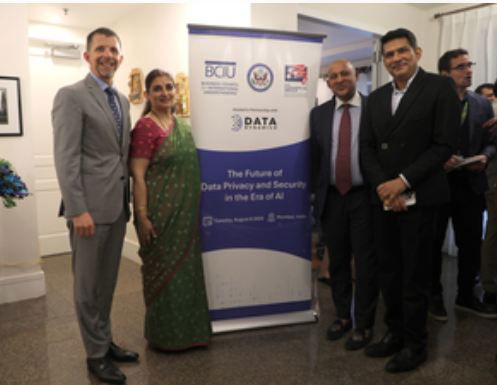Technology
Harness AI’s potential while protecting individual rights: US Consul-General

Mumbai, Aug 7
Mike Hankey, US Consul-General in Mumbai, on Wednesday said that through international cooperation and adherence to ethical standards, we can empower societies and economies to fully leverage AI's potential while protecting individual rights and freedoms.
As India emerges as a global AI frontrunner, the intricate interplay between data innovation, data sovereignty and robust privacy safeguards has become a paramount concern, especially given the rise of AI.
Speaking at an event here, Hankey said that as AI technology rapidly advances, safeguarding data privacy and security become increasingly crucial.
He highlighted the need for robust frameworks that foster innovation while ensuring the ethical development and deployment of AI solutions.
The event brought together government officials and industry leaders, like Sujata Saunik, state Home Secretary and Yashasvi Yadav, Special Inspector General of Police, Maharashtra Cyber.
According to Piyush Mehta, CEO, Data Dynamics, ensuring Digital Trust is foundational to our nation's digital aspirations.
“This is defined by a commitment to data privacy, ethical AI, data sovereignty and security, while complying with social and environmental regulations. It is imperative that we build a data ecosystem that is not just secure but also equitable and inclusive,” said Mehta.
“India has the potential to be a global data powerhouse, but realising this potential requires a delicate balance between fostering innovation and protecting individual privacy rights,” he added.
The roundtable at the event delved into the complexities of navigating India's data landscape, where the potential to harness data for economic growth is immense.
Based on an Ericsson Mobility Report, India is set to become the world's largest mobile data consumer by 2028, surpassing even developed nations.
With average monthly data consumption projected to reach 62GB per user, India's appetite for data will outpace those of the US, western Europe, South Korea and China.
The roundtable at the event called for a comprehensive national data strategy that addresses data privacy, security, and sovereignty, focussing on open dialogue and collaboration, laying the groundwork for a robust data ecosystem in the country.



































